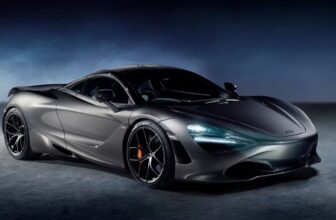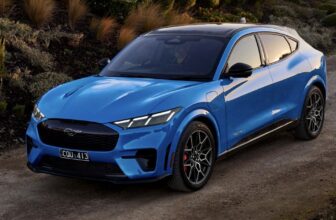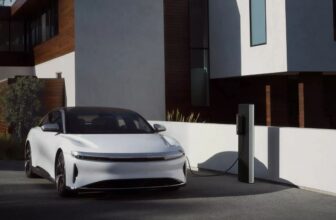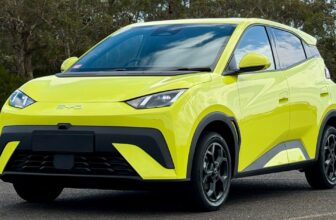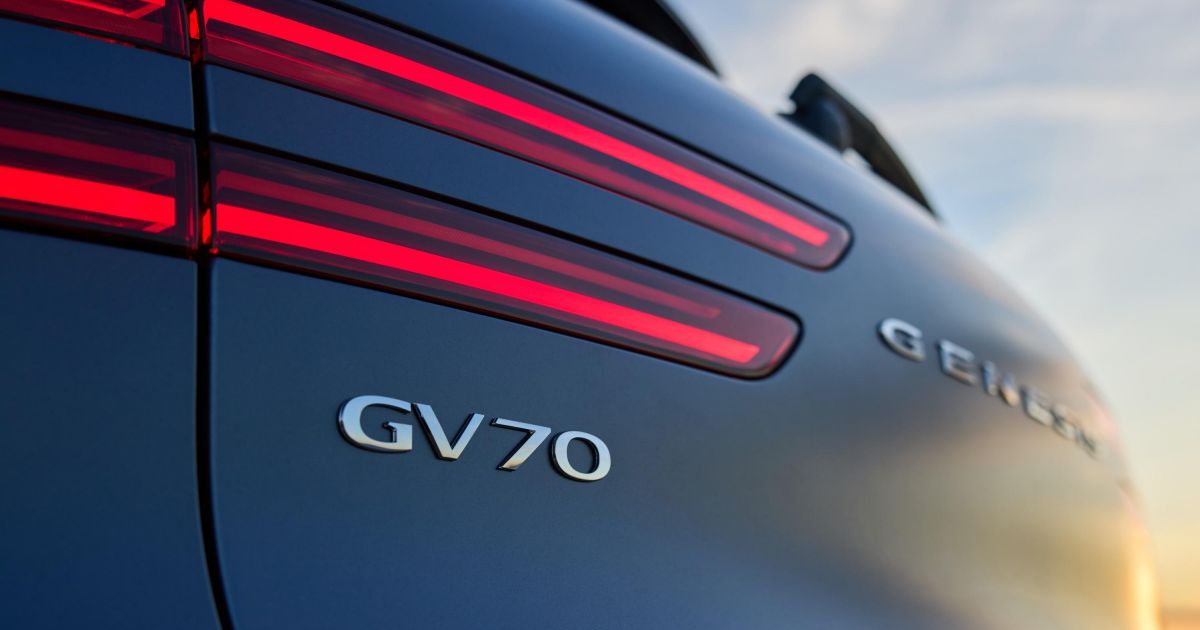
Take a look at our newest merchandise
The 2026 Genesis GV70 has been spied testing with hybrid powertrains which might be set to be provided alongside current petrol and battery-electric (EV) variations.
Pictures present a camouflaged GV70 being examined with ‘HEV’ badging – which stands for Hybrid Electrical Automobile – confirming the mid-size luxurious SUV will turn into out there with a hybrid powertrain as beforehand reported.
Mother or father firm Hyundai lately launched a new-generation hybrid powertrain to its Palisade giant SUV in Australia, which produces 245kW of energy and 460Nm of torque, and returns mixed gasoline consumption of 6.8L/100km.
This petrol-electric powertrain is predicted to even be fitted to the GV70 – in addition to the Genesis GV80 giant SUV and the G80 giant sedan, that are anticipated to be launched in early 2026, though Genesis has not but confirmed their launch in Australia.
CarExpert can prevent 1000’s on a brand new automotive. Click on right here to get an important deal.
But in keeping with Autoblog and earlier experiences out of Korea, along with the extra typical hybrid setup, Genesis may also supply an extended-range electrical car (EREV) model of the GV70 from December 2026.
A two-pronged hybrid powertrain strategy would allow the G70 to raised compete with premium mid-size SUV rivals just like the BMW X3, Mercedes-Benz GLC, Audi Q5, Volvo XC60 and Lexus NX, all of which can be found with at the least petrol and plug-in hybrid (PHEV) – and in some circumstances HEV and EV – powertrains.
EREV choices are uncommon in Australia’s new-vehicle market. In actual fact, should you exclude Nissan’s e-Energy fashions, that are comparable in idea, the one one at the moment out there is the Leapmotor C10 REEV, however earlier examples have included the BMW i3 REx and Mazda MX-30 R-EV (not offered right here).
A number of automakers and suppliers are growing new EREV powertrains, wherein a smaller-capacity (normally petrol) engine acts solely as a generator to energy an electrical motor (or motors) that drives the wheels, offering an EV-like driving expertise with out the vary anxiousness.
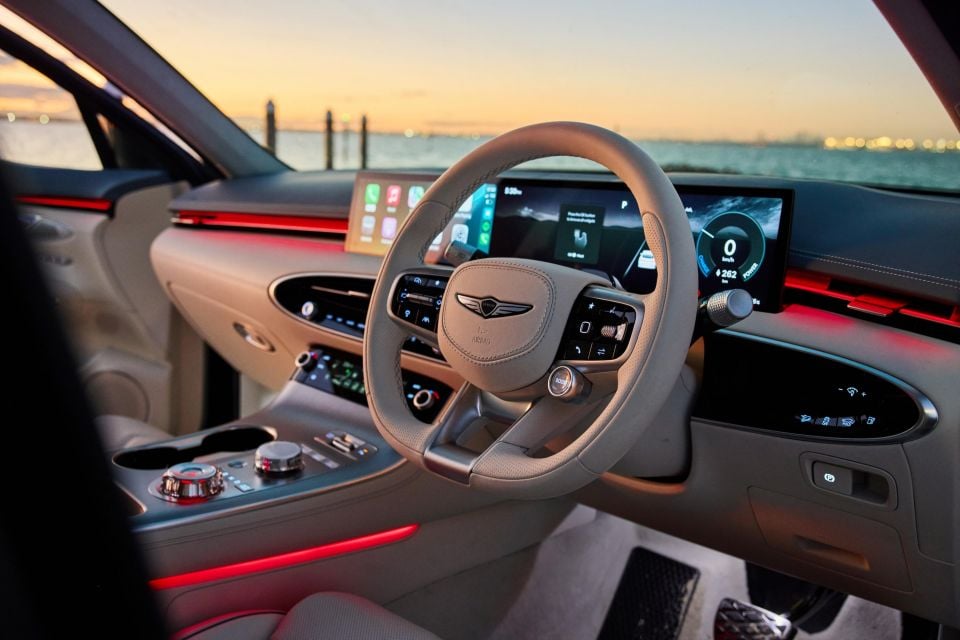
The EREV setup operates in almost the alternative method to how the Hyundai group’s next-generation hybrid powertrain behaves within the Palisade and, quickly, Genesis fashions.
It groups a turbocharged 2.5-litre four-cylinder petrol engine with pair of electrical motors, one in all which is designed to optimise fuel-efficiency and smoothness, whereas the opposite focusses on offering an influence increase.
The present, first-generation GV70 was launched in Australia in 2021 with the selection of two.2-litre turbo-diesel and a pair of.5-litre turbo-petrol four-cylinder engines, in addition to a flagship 3.5-litre petrol V6.
The battery-electric GV70 Electrified was launched in 2023, and now has a 360kW/700Nm dual-motor EV powertrain providing as much as 462km of WLTP vary, whereas the diesel was dropped the next yr.
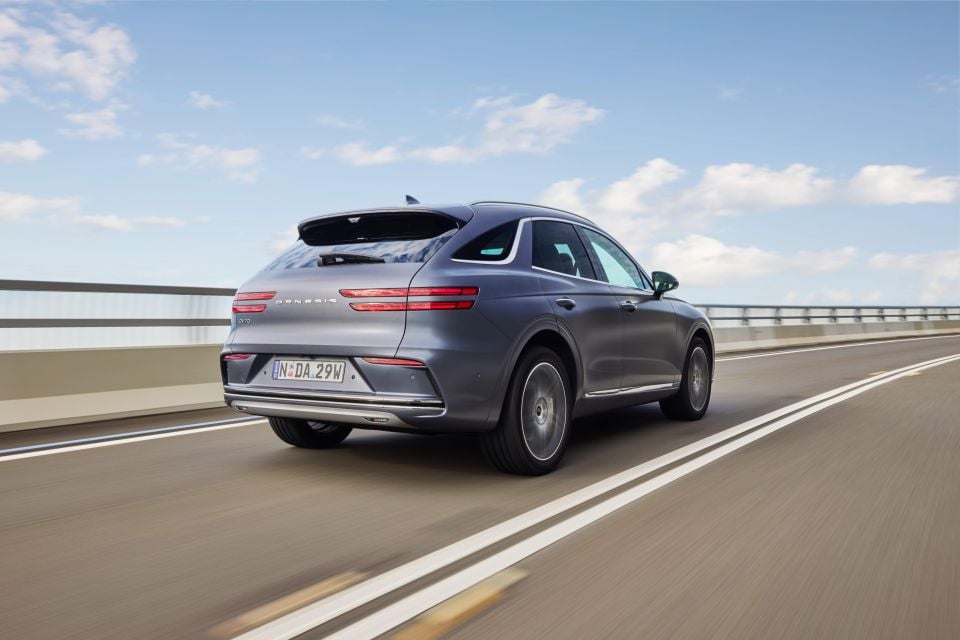
The return of EREV powertrains follows slower than anticipated progress of EV gross sales globally, main many automakers to cut back their EV gross sales forecasts, push again their all-EV manufacturing plans, and spend billions growing replacements for beforehand discontinued combustion-powered fashions.
The numerous enhance in reputation of hybrid automobiles in key markets together with China and the US – in addition to Australia – has additionally prompted many automakers to revise their product plans.
Genesis beforehand stated it might launch solely new EVs from 2025 earlier than going electrical and hydrogen fuel-cell electrical solely by 2030. Nevertheless, it has since deserted that EV-only technique and can launch a spread of hybrid fashions as quickly as 2026, with EREVs anticipated to seem throughout the Hyundai group from 2027.
MORE: Genesis to sort out electrical, plug-in hybrid BMW, Benz SUVs with new range-extender
MORE: Genesis GV80 to get hybrid energy in 2026
MORE: Discover the Genesis GV70 showroom



